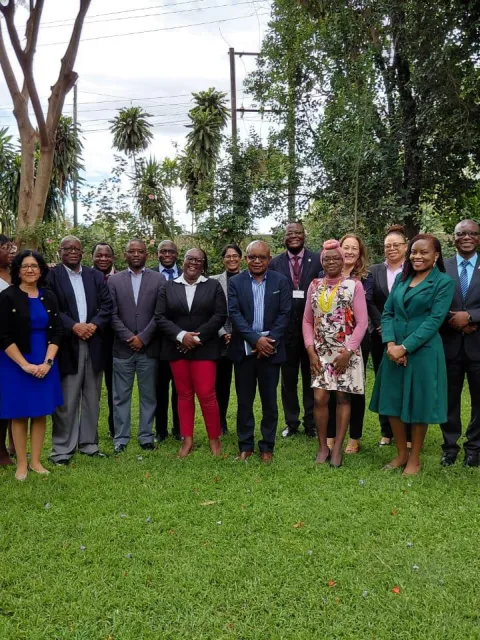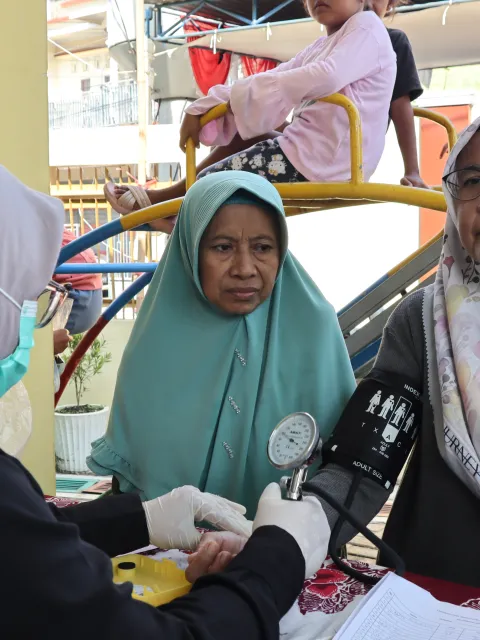WHO adds key cancer medicines to the Model List of Essential Medicines – a critical step towards equitable access
UICC welcomes the addition of new cancer treatments for leukaemia, lung, cervical, and colorectal cancers in the new WHO EML released last week. Continued advocacy and collaboration are essential, however, to ensure equitable access and translate listings into meaningful patient outcomes.
Last week, the World Health Organization (WHO) published the 24th Model List of Essential Medicines (EML) and the 10th Model List for Children (EMLc). The WHO Expert Committee on the Selection and Use of Essential Medicines recommended the addition of 20 new medicines to the EML, with a strong emphasis on addressing unmet public health needs and improving access to life-saving treatments worldwide.
Essential medicines are defined as those that “satisfy the priority health care needs of the population”. They are selected based on their relevance for public health, evidence of their efficacy and safety, and comparative cost-effectiveness.
Seven applications for cancer medicines were submitted for consideration in the 2025 updated list, including several immune checkpoint inhibitors – medicines that help the immune system recognise and attack cancer cells by blocking proteins that suppress immune responses.
UICC welcomes the inclusion of several key medicines for leukaemia, lung, cervical, and colorectal cancers as a step forward in improving access and strengthening the global cancer response:
- Zanubrutinib is recommended as an alternative to ibrutinib for chronic lymphocytic leukaemia/small lymphocytic leukaemia (CLL/SLL), particularly given its greater affordability and accessibility in some countries
- Blinatumomab is included for the treatment of CD19-positive B-lineage acute lymphoblastic leukaemia (B-ALL)
- Immune checkpoint inhibitors such as pembrolizumab, atezolizumab, and cemiplimab were prioritised for a range of cancers, including non-small cell lung cancer, colorectal cancer, and cervical cancer.
- Pembrolizumab is recommended as first-line monotherapy for metastatic cervical cancer, metastatic colorectal cancer and metastatic non-small cell lung cancer
- For non-small cell lung cancer, atezolizumab and cemiplimab are included as specified therapeutic alternatives for pembrolizumab
Beyond oncology medicines, the EML was expanded to include therapeutic sunscreen for people with albinism to prevent skin cancer, and cytisine (cytisinicline) was added as a smoking cessation aid, recognising its favourable benefit-risk profile in helping reduce the global tobacco use.
Improving access in low- and lower middle-income countries
The inclusion of cancer medicines on the WHO EML helps shape national policies and encourages member states to update their own National Essential Medicines Lists (NEMLs) – a vital step in ensuring access to medicines. In a global review of national cancer control plans led by UICC, it was found that only 26% referenced a strategy to align national lists with cancer treatment needs and only 8% had aligned their NEMLs with the WHO EML.
Furthermore, as highlighted in UICC’s statement to the WHO Expert Committee in May 2025, listing a cancer medicine on the WHO EML is only a first step. Many resource-limited countries still face major barriers in making these medicines available and affordable, and ensuring that they are used appropriately. The core infrastructure to deliver cancer care – including trained personnel, quality assurance, supply chains, cold storage, diagnostic capacity, and patient care, is often fragmented or absent.
Recognising the complex challenges in ensuring access to essential cancer medicines, UICC launched in May 2022 the Access to Oncology Medicines (ATOM) Coalition. This broad Coalition brings together over 40 partners from civil society, the public sector, and the pharmaceutical industry.
“To ensure these medicines truly reach the right patients at the right time, they must be integrated into functioning health systems, with adequate infrastructure, trained personnel, supply chains, and affordability mechanisms in place. This will require country-specific strategies and a coalition-based, collaborative effort. Stakeholders – including governments, civil society, global health organisations, and the pharmaceutical industry – must work together to overcome systemic challenges.”
– Shalini Jayasekar Zurn, Senior Advocacy Manager, UICC
The WHO Expert Committee also addressed the need to improve access. It highlighted the need for policies supporting the rapid entry of quality-assured biosimilars, recognised the importance of companion diagnostic tests, and emphasised strategies tailored to resource-constrained settings. The Committee also stressed the importance of empowering patients in the decision-making process about benefits, risks, and feasibility of care.
Last update
Tuesday 09 September 2025
